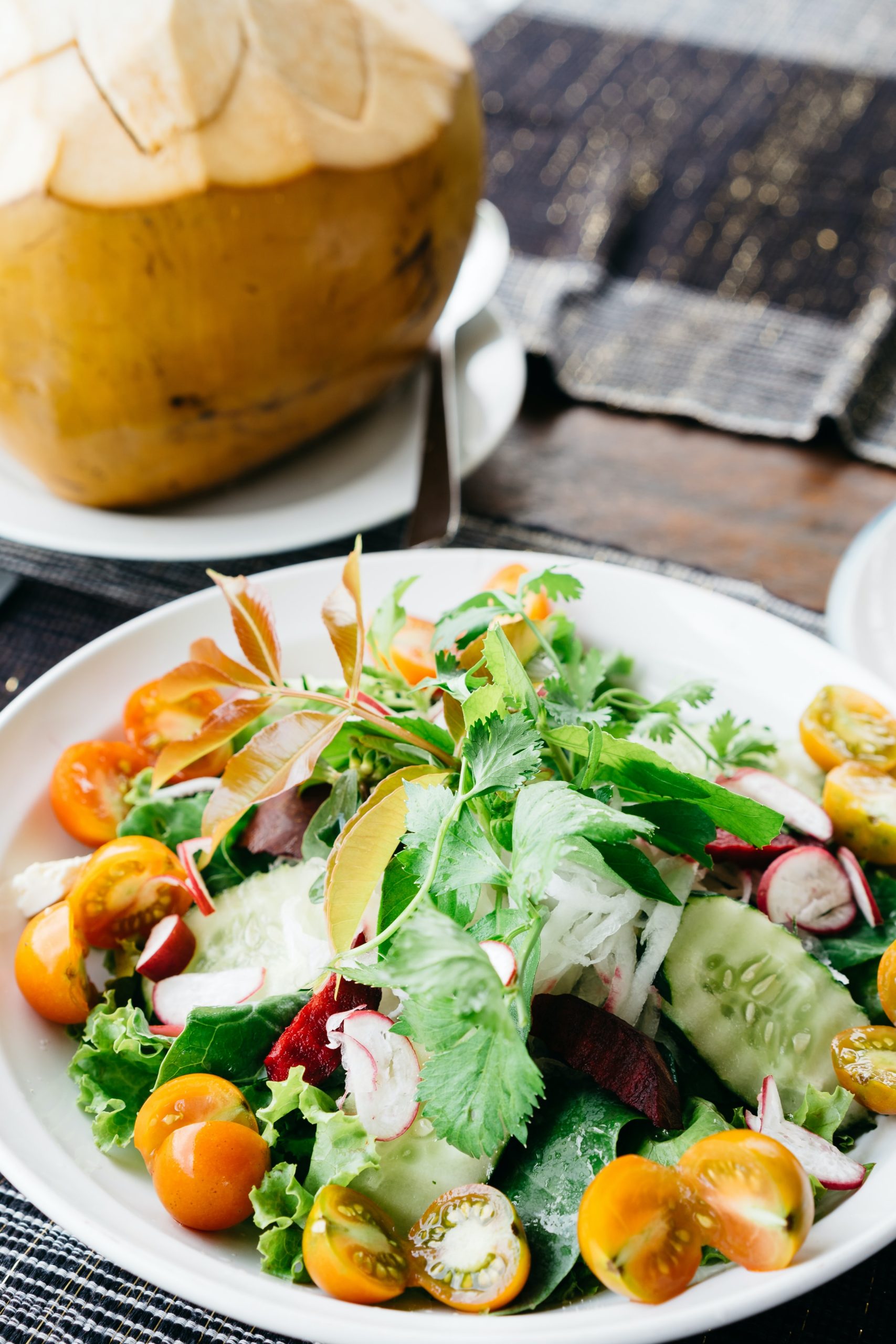Immune Boosting Tips During The Coronavirus Outbreak
With the Coronavirus being our biggest enemy now, everyone wants to know how they can strengthen their immunity. We all know that we can prevent getting the infection by washing our hands and by not touching our face. What if someone sneezes or coughs near you? How can you prevent getting those germs? Many studies have been done on this topic and no magic pill exists, but we will try to help navigate the many ways that can boost the immune system. Our immune systems are designed to fight off any sickness and virus which is why it is so important to keep it in my mind, especially due to what is going on around us today. Yes, these tips will not cure or guarantee anything, but they will help create a balance when it comes to your health.
Eat Immunity Boosting Foods
There are a ton of foods out there that can provide a boost of vitamins naturally. Vitamin A, C, B6, D, E are all are extremely important and beneficial to boost your immune system. We know that the immune system needs certain nutrients in order to function well. If we can supply those nutrients through our diet, we can boost our immunity.
Vitamin A: Vitamin A is essential for vision, reproduction, and cellular communication of the body. Liver, whole or fortified milk and milk products contain vitamin A. Leafy green vegetables such as spinach, broccoli, brussels sprouts, yellow and orange fruits and vegetables such as cantaloupe, carrots, sweet potatoes and squash contain beta-carotene, which converts to vitamin A in the body.
Vitamin B6: Vitamin B6 is vital to supporting biochemical reactions in the immune system. Foods include chicken, salmon, tuna, green vegetables, chickpeas, and soya beans.
Vitamin C: Daily intake of vitamin C is essential for good health because your body doesn’t produce or store it. Foods rich in Vitamin C include oranges, strawberries, grapefruits, kiwis, bell peppers, broccoli, kale, spinach and brussell sprouts.
Vitamin D: Vitamin D is known to enhance the function of immune cells, including T-cells and macrophages, that protect your body against pathogens. Foods rich in Vitamin D include fatty fish, like tuna, mackerel, salmon, beef liver, cheese, cereals are a good source. Vitamin D is highest in cod liver oil, mushrooms and all dairy products that are fortified with it.
Vitamin E: Vitamin E is a powerful antioxidant that helps the body fight off infection. Foods rich in vitamin E include almonds, hazelnuts, pinenuts, seeds, spinach, avocados, mangoes, butternut squash, trout as well as sunflower, safflower, and soybean oil.
Other foods that can boost your immune system: Ginger, Turmeric root or turmeric powder, garlic, licorice, echinacea and yogurt are amazing sources that can really boost your immune system. Iron is essential too. Iron is found in meat, chicken, fish legumes, whole grains and iron-fortified breakfast cereals. Some essential minerals our immune system needs are Zinc and Selenium. Zinc can be found in: shellfish, oysters, beef, beans, cereal/oatmeal, cashews, chickpeas, almonds, and peas. Selenium can be found in: brazilnuts, fish, beef, turkey, chicken, cottage cheese, rice, milk/yogurt, lentils, and spinach.
Micronutrients that works well with the immune system are Polyphenols and Carotenoids. Polyphenols come from plants that are green. Some other examples are onions, berries and tea leaves. Carotenoids come from orange/yellow/red vegetables and fruits, for example, carrots, grapefruits, oranges and squash.
Probiotics change the bacteria in our gut, therefore helping the gastrointestinal tract also become involved in preventing infection. A lot of immune cells live in our intestines, so can the probiotics give them time to start working. For young and elderly patients it’s recommended to increase the good fat intake so they have the energy to fight off infection. Good fats are in fish, nuts, oils like coconut and olive oil and avocados.
Supplements:
Of course alot of these vitamins can be taken in a supplement form but consult with your doctor before you do so. Two of the hottest supplements on the market right now are Echinacea and Elderberry. Both come as pill and liquid form, but are plant-based supplements. Neither of these prevents infections, but both of them can shorten the duration of your symptoms. So if a cold would normally last 1 week, you can make it go away in 2-3 days. These sound like promising results, but some supplements do not contain pure ingredients. So you have to make sure you are using a trusted source, like Equate or Kirkland. Since supplements are neither a food nor a drug, they are not regulated by the FDA and can have impurities. It is not recommend to take any high dose vitamins, unless prescribed by a doctor. They can cause side effects and can even interact with prescription medicines.
Reduce Stress
Yes this is a very stressful time for everyone but stress can actually cause serious health problems, such as heart disease, high blood pressure, diabetes, and other illnesses, including mental disorders. During this time there are many ways you can manage your stress and anxiety.
According to the CDC:
Take breaks from watching, reading, or listening to news stories, including social media. Hearing about the pandemic repeatedly can be upsetting. Take deep breaths, stretch, or meditate external icon. Make time to unwind. Try to do some other activities you enjoy and connect with others. Talk with people you trust about your concerns and how you are feeling to reduce your stress.
Get Enough Rest
Sleep is very important when it comes to taking care of your immune system. According to Mayo Clinic, during sleep, your immune system releases proteins called cytokines, some of which help promote sleep. Certain cytokines need to increase when you have an infection or inflammation, or when you’re under stress. Sleep deprivation may decrease the production of these protective cytokines. In addition, infection-fighting antibodies and cells are reduced during periods when you don’t get enough sleep. So, your body needs sleep to fight infectious diseases. The optimal amount of sleep for most adults is seven to eight hours of good sleep each night.
Exercise
Yes, it can be tough to stay active since we are stuck indoors and cannot go to the gym or go for our everyday run but there are a ton of fitness companies that are doing virtual classes for their members. You can also work out by using at-home workouts from YouTube and Instagram Lives that are free to use. Yoga is also a great option while you are at home as it involves movements, breathwork, and meditation that can assist in enhancing feelings of calm and clarity. Staying active and exercising will help your immune system tremendously. Exercise increases blood circulation and has an anti-inflammatory effect on the body. We want to make sure that we get moderate-intensity exercise 3-5 times a week for 30-45 minutes. Short episodes of high-intensity workouts do not boost your immune system.
Reduce Inflammation Causing Culprits
Inflammation is caused when our bodies are trying to give us a signal that our body is under threat. Alcohol and smoking are one of these culprits. Sometimes to cope with stress many can turn to alcohol but drinking can lead to the depletion of immune cells. Smoking can create respiratory issues which can be super harmful to your immune system, especially during the coronavirus outbreak. A ton of refined sugar, fatty meats, processed meats, refined carbohydrates, and certain vegetable oils cause inflammation in the body.
Taking care of your immune system will be very beneficial for you in the long run but this is the perfect time to work on that balance and make sure you are doing your part when it comes to your health. If you are looking for more information on coronavirus, take a look at ‘Advice About Coronavirus By Jersey City Doctors‘.
In summary:
- Eat a varied diet to get the micronutrients, and vitamins you need.
- Only take supplements if your doctor prescribes them.
- Get exercise 3-5 times a week for 30-45 minutes
- Wash your hands
- Don’t touch your face.
- Stay safe!
Information Resource:
DRS Medical Associates
115 Christopher Columbus Dr







